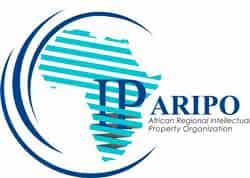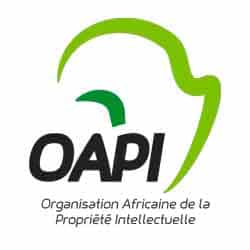International protection
Do not internationalize without maximum protection
Do you own a trademark that has been perfectly implemented at national level and feel that now is the time to take it to other parts of the world? In that case, it is important for you to know that the definition of an internationalization strategy for your trademark is equally as important as its marketing and export strategy. This is because it is only by registering the trademark that you will be protected against third parties wishing to imitate it.
Inventa is not only present in many parts of the world, but we also have a vast network of global partners at our disposal, guaranteeing you maximum efficiency when it comes to registering and managing your trademark internationally.
Search or select from the list
There are no results for your search.
- Afghanistan
- Åland Islands
- Albania
- Algeria
- American Samoa
- Andorra
- Angola
- Anguilla
- Antigua and Barbuda
- Argentina
- Armenia
- Aruba
- Australia
- Austria
- Azerbaijan
- Bahamas
- Bahrain
- Bangladesh
- Barbados
- Belarus
- Belgium
- Belize
- Benin
- Bermuda
- Bhutan
- Bolivia
- Bonaire
- Bosnia and Herzegovina
- Botswana
- Brazil
- British Indian Ocean Territory
- British Virgin Islands
- Brunei Darussalam
- Bulgaria
- Burkina Faso
- Burundi
- Cambodia
- Cameroon
- Canada
- Cape Verde
- Cayman Islands
- Central African Republic
- Chad
- Chile
- China
- Christmas Island
- Cocos (Keeling) Islands
- Colombia
- Comoros
- Congo (Republic)
- Cook Islands
- Costa Rica
- Côte d'Ivoire
- Croatia
- Cuba
- Curaçao
- Cyprus
- Czech Republic
- Democratic Republic of the Congo
- Denmark
- Djibouti
- Dominica
- Dominican Republic
- East Timor
- Ecuador
- Egypt
- El Salvador
- Equatorial Guinea
- Eritrea
- Estonia
- Eswatini (Swaziland)
- Ethiopia
- Falkland Islands (Malvinas)
- Faroe Islands
- Fiji
- Finland
- France
- French Guiana
- French Polynesia
- Gabon
- Gambia
- Georgia
- Germany
- Ghana
- Gibraltar
- Greece
- Greenland
- Grenada
- Guadeloupe
- Guam
- Guatemala
- Guernsey
- Guinea
- Guinea-Bissau
- Guyana
- Haiti
- Holy See (Vatican City State)
- Honduras
- Hong Kong
- Hungary
- Iceland
- India
- Indonesia
- Iran
- Iraq
- Ireland
- Isle of Man
- Israel
- Italy
- Jamaica
- Japan
- Jersey
- Jordan
- Kazakhstan
- Kenya
- Kiribati
- Kosovo
- Kuwait
- Kyrgyzstan
- Laos
- Latvia
- Lebanon
- Lesotho
- Liberia
- Libya
- Liechtenstein
- Lithuania
- Luxembourg
- Macao
- Macedonia
- Madagascar
- Malawi
- Malaysia
- Maldives
- Mali
- Malta
- Marshall Islands
- Martinique
- Mauritania
- Mauritius
- Mayotte
- Mexico
- Moldova
- Monaco
- Mongolia
- Montenegro
- Montserrat
- Morocco
- Mozambique
- Myanmar
- Namibia
- Nauru
- Nepal
- Netherlands
- Netherlands Antilles
- New Caledonia
- New Zealand
- Nicaragua
- Niger
- Nigeria
- Niue
- Norfolk Island
- North Korea
- Northern Mariana Islands
- Norway
- Oman
- Pakistan
- Palau
- Panama
- Papua New Guinea
- Paraguay
- Peru
- Philippines
- Pitcairn
- Poland
- Portugal
- Puerto Rico
- Qatar
- Réunion
- Romania
- Russia
- Rwanda
- Saint Barthélemy
- Saint Kitts and Nevis
- Saint Lucia
- Saint Martin (French part)
- Saint Pierre and Miquelon
- Saint Vincent and the Grenadines
- Samoa
- San Marino
- Sao Tome and Principe
- Saudi Arabia
- Senegal
- Serbia
- Seychelles
- Sierra Leone
- Singapore
- Sint Maarten (Dutch part)
- Slovakia
- Slovenia
- Solomon Islands
- Somalia
- South Africa
- South Korea
- South Sudan
- Spain
- Sri Lanka
- Sudan
- Suriname
- Svalbard and Jan Mayen
- Sweden
- Switzerland
- Syrian Arab Republic
- Taiwan
- Tajikistan
- Tanzania (mainland)
- Thailand
- Togo
- Tokelau
- Tonga
- Trinidad and Tobago
- Tunisia
- Turkey
- Turkmenistan
- Turks and Caicos Islands
- Tuvalu
- Uganda
- Ukraine
- United Arab Emirates
- United Kingdom
- United States Minor Outlying Islands
- United States of America
- Uruguay
- US Virgin Islands
- Uzbekistan
- Vanuatu
- Venezuela
- Viet Nam
- Wallis and Futuna
- Western Sahara
- Yemen
- Zambia
- Zanzibar
- Zimbabwe
Learn how
Is there a global trademark registration?
There is no global trademark registration that covers all jurisdictions in the world, but rather a territorial registration system. Any registration process has to be carried out in one specific jurisdiction and, therefore, protection is granted at national level.
However, you can make use of the various existing international or regional agreements that cover several territories at once. In the case of European Union Trademark, for example, your trademark is protected in all 28 member states of the European Union through a single registration.
These agreements help reduce both the bureaucracy and the expense involved. However, they require a thorough knowledge of the legal complexity and the requirements of each country’s system, in order to ensure that your mark is properly protected - and this is something that Inventa can guarantee you.
Request Quote Schedule Conference CallConventions
International agreements on trademarks

EUIPO
Automatic protection across all 27 EU Member States, with only one application.

Madrid System
Ensures trademark protection in several countries, through a single application.

ARIPO
Allows for a single trademark application to be effective across its designated members states.

OAPI
Covers its member states' lack of national Intellectual Property laws, with automatic and unified protection.

Paris Convention
The Paris Convention created a Union for the protection of Industrial Property rights and established the priority right among member States.
Where
In which countries should I register my trademark?
Most entrepreneurs ask themselves which countries they should register their trademarks in. The answer is simple: in all those countries with markets of commercial interest which you have targeted, whether it be to market your trademark directly or to sell/license it to third parties.
Failure to register a trademark can lead to someone else realizing its high commercial value and proceed to register it for themselves. This would mean that you lose out on the chance to protect your trademark in that jurisdiction. Given these circumstances, the risk is imminent and high and, therefore, clearly offsets the costs involved in the registration of an international trademark.
In order to reduce this risk, after filing the initial trademark application in a given territory, you can claim a right of priority within a period of six months from that date against any person or entity trying to register your trademark. Whether or not that time limit has been exceeded, Inventa will always advise you on the best ways to protect your trademark at international level.
Your questions
Our answers
What is the internationalization of trademarks?
The registration of trademarks happens at a territorial level (i.e., it is limited to the jurisdiction in which the trademark has been registered). As such, it is essential that you register your trademark in every jurisdiction where you want it to be protected, thus opening up the possibility of marketing or licensing your goods/services there.
Is there a global trademark registration?
No, there is no system that allows you to obtain a trademark protection worldwide. As such, you will either have to individually register your trademark in each jurisdiction you wish to enter, or choose a regional or international regime that covers several countries in a single application. This is what happens, for example, with the European Union Trademark, that through a single registration protects your trademark in all the 28 European Union member states.
Why should I register my trademarks at international level?
Given that trademarks are only effective in the territory where they have been registered, it is imperative that you protect your trademark individually in each jurisdiction you wish to expand your business into. This will ensure its protection against any attempts of imitation or counterfeit.
When should an international registration be carried out?
The international trademark registration should be carried out as soon as you have defined a strategy for international expansion. This, in itself, is a process that may involve research on the feasibility of registering your trademark in the targeted jurisdictions. After this analysis, Inventa can help you with the entire trademark application process, providing you with the best strategies for protecting your industrial property at international level.
In which countries should I register my trademark?
The decision on when to proceed to a trademark application obviously depends on your commercial strategy. However, it is recommended that you apply for an international trademark registration in all markets you wish to enter, whether it is to directly market your trademark or license it to third parties.
How can Inventa help me with international trademark registration?
The fact that we are a multinational company collaborating with the best partners worldwide provides us with a unique knowledge of each country’s local reality. Accordingly, when it comes to international trademark applications, we have brought together skills that have already allowed us to provide this service to thousands of clients all over the world.
By working with highly-qualified professionals, as well as the latest state-of-the-art technology, we can assure you maximum efficiency concerning international registrations and protection of your trademarks, ensuring the greatest possible focus on the success of your intellectual property at all times.
Can't find what you're looking for? Try the Support Center
Send us a message
